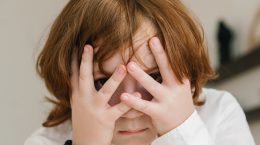More than 2.1 million people live in rural areas in Belarus. This number is gradually decreasing because salaries in the village are lower than in the city. There is very little entertainment for young people, and housing conditions are worse than in cities. However, there are still families with children there, and rural schools are still needed. Only the state does not think so, one by one closing low-grade educational institutions. There is no one to stand up for the village schools and cancel the “optimization” – “Our House” has often raised the topic. Today we will tell you how our activists prevented the closure of schools in rural areas (and sometimes in cities).
Drawing turned out to be less relevant than fighting. In 2011, the art studio of the Tolochin School of Art was evicted from the premises in secondary school No. 2 of the city. Officials from the education department of the district executive committee decided that instead of an art school, an armoury would be much more necessary. The studio had to huddle in the local culture house, other schools of the district centre. And in its place, an office of pre-conscription training and a section of notification of mobilization resources of the military enlistment office was created in secondary school No. 2. “Our House” reacted with outrage to the fact that children lost the opportunity to paint. Recently, we decided to find out about the fate of the fine art studio – it turned out that now the children have a room for creative activities. Graduates of the department enter the capital’s colleges and universities in the field of art and architecture, win national and international competitions.
The closure of schools is a phenomenon typical not only for the periphery but also for the central Minsk region. In 2013, “Our House” told about the closure of 31 schools in the Minsk region – vivid evidence of the “successful” demographic policy. In the publication, we calculated that from 2003 to 2012, 236 educational institutions closed and 112 reorganized in the central region. The number of schoolchildren during the same time decreased by a third – from 205.2 thousand to 137.7 thousand. “Our House” was one of the only organizations in Belarus that wrote about the so-called “optimization” of evening schools-educational institutions for adults who failed to complete secondary education. The officials justified this action by the fact that with 9-class education, you can enter a vocational educational institution.
In 2014, in Polotsk, the officials decided to close school No. 13 in the Novka district. It is located in the eastern part of the city and is isolated from the main territory by the bank of the Western Dvina River and railway tracks. In 2011, the school became 9-class, high school pupils had to study at other institutions, and three years later, the district executive committee decided that the residents of Novka would not need a school. The parents organized a petition on the Internet, under which they collected more than 1,650 signatures in a few days. “Our House” also drew attention to the problem – to influence the situation with the school, we published information about it on our website. The educational institution worked further for two whole years – the last call here sounded in the spring of 2016. Officials explained that few children are going to it, teachers do not work out the hours, which means that there is no sense in the school – although more than 100 children studied there, including from the nearest villages.
What happens to empty school buildings? Most often, they go for a sale at auctions for tiny amounts. Local or foreign entrepreneurs become their owners. For example, in 2018, an entrepreneur bought a former school in the village of Troshchitsy in the Korelichy district. Here, he found a factory for the production of artistic ceramics. In 2020, the school in Makovye village, Gomel district, was purchased to create an agricultural estate. But after the transfer of the construction to the residential fund, it began to be subject to huge taxes. And in February 2021, officials announced the conversion of the building of a closed school in Svisloch into a sports and educational centre. “Our House” also wrote about the problem of the destruction and sale of school buildings. In 2015, we published a photo of a school for sale in Zabolotye village, Oktyabrsky district. The problem was that a couple of years before the school closure, they made a renovation and then decided that it was unprofitable. The building appeared on auction for one base value. But even at this price, no one bought it – despite the recent renovation, the walls were covered with mould.
In 2017, the only school in the agro-town of Kaplichi, Kalinkovichi district, stopped working. The building was recognized as an emergency, but no one began to repair it – the school work stopped. The children started studying in the school 30 kilometres away from their native village. Meanwhile, more than 70 schoolchildren, 25 pre-school children and 26 kids aged from 0 to 3 years lived in Kaplichi alone – it is impossible to call the school unpromising. In addition, children from other villages also went to it. “Our House” joined in solving the problem – we visited Kaplichi and told you about what is happening with the local school.
In 2018, a resident, Rosa Strelchenko, prepared a program for the school restoration – she was supported by other villagers, having nominated the activist for elections to local councils. After becoming a deputy, Rosa Strelchenko tried to draw the attention of the authorities and the media to the school. At her request, deputy of the House of Representatives Alena Anisim came to the agro-town. Representatives of the World Bank expressed their readiness to include the school in the project “Modernization of the education system of the Republic of Belarus” if the Ministry of Education gives a corresponding request. However, the activist was threatened with a mental hospital, saying that there are people with plans for the school. “Our House” has prepared an interview with Rosa Strelchenko.
The deputy said that she would very much like to return primary and 9-class schools to Kaplichi: children have difficulties with moving 30 kilometres away, they return home late, do not have time to rest, do their homework, attend interest groups. However, in 2020, officials decided to sell the building, despite many people who disagree with this decision. But “Our House” did not pass by history: threats to deputy Rosa Strelchenko were in the monitoring of repressions against women in Belarus for 2019, which formed the basis of reports by international organizations.
The closure of schools in Belarus continues, but there is no one to fight for them in difficult times when a person can be imprisoned for any activity. The problems remain unnoticed behind the endless repressions against Belarusians who opposed the Lukashenka regime. However, the “optimization” continues. In Novopolotsk, a city where almost 100 thousand people live, there were rumours about the closure of three kindergartens and one school at once. The city executive Committee told the journalist of “Our House”: they are trying to combine the school with another school, and there is simply no one to go to kindergartens. Secondary school No. 5 and nursery schools No. 6, 22 and 23 were closed. “At one time, Novopolotsk flourished at the expense of enterprises, so good kindergartens appeared. And now the birth rate is falling. During the existence of this system, more than six kindergartens have been closed in Novopolotsk,” the city executive committee added.
While Lukashenka demands that Belarusian women give birth more and go to villages, kindergartens and schools in rural areas stop working. There is no work at state-owned enterprises and in the service sector because farms are being “optimized” one after another and closed, and people are leaving. Entrepreneurs do not go there to open their own business – in the current pressure on private factories, they prefer to close and leave the country. The ugly system itself provokes the disappearance of not only rural schools but also the entire Belarusian village.
After the victory, “Our House” will join the restoration of rural areas in Belarus. We must make sure that people stay and work in the village, receive a high income and equip their homes. We must allow children to study in small classes of cosy and bright schools, where there are opportunities to get acquainted with nature and the surrounding world every day. So that children do not see the concrete jungles of cities, but the forest flora and fauna, and do not hear the noise of cars, but the singing of birds. So that forgotten manors, churches and churches are restored in the villages-the memory of our history, which is so not beneficial to the dictator. Finally, we must do everything so that the villagers do not feel like slaves and serfs of the usurper.







